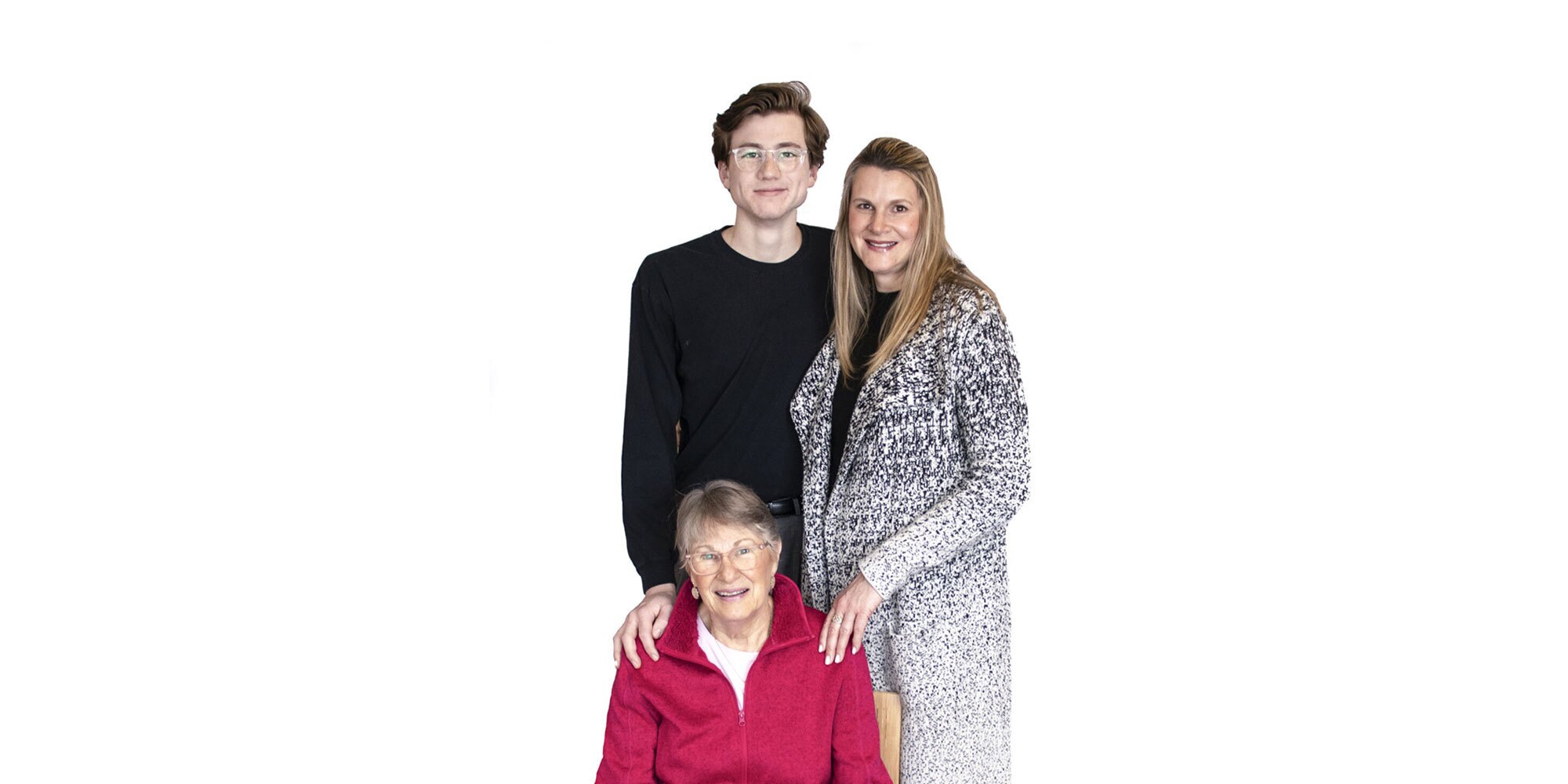When the Professional Becomes Personal
Though there is a lot we don’t yet know about the coronavirus and COVID-19, we’re learning more every day, thanks to the work of medical researchers, epidemiologists, physicians and scientists.
And like many of us, I turn to journalists and the news media to discover the results of their hard work. As the owner of a marketing agency that specializes in the fields of health and wellness, I am eager to learn how we can support our clients during the pandemic. As a mom and daughter, I look to these same experts to help me decide how best to care for my family.
Werremeyer Creative supports clients that offer residential care to seniors; some specialize in assisted living and memory care, others in offering seniors the option of independent living with first-class amenities to help support their health, interests and lifestyles. Additionally, my mother chose to live in an independent-living community a few years ago.
So it’s no surprise that I have paid particularly close attention to news stories about the spread of COVID-19 in nursing homes and other residential retirement communities. After reading several of these articles, it might be easy to conclude that these kinds of communities are unsafe. In fact, this CNN article suggests a trend away from retirement communities and other residential options that cater to older adults. Fear of COVID would appear to be driving that trend.
To help prevent a bias against these communities, I’d like to propose that we consider what these communities have to offer their residents — even during a pandemic. And I think it’s important to keep in mind that these benefits will continue, long after this pandemic ends. I’ll admit I’m biased in favor of these kinds of communities, but I think my stance is well-informed. I’d like to share some anecdotes from my personal and professional life to explain why that’s so.
It’s personal
About the time my mom, Jennie, turned 70, she moved into a duplex in a community designed for older adults. She happily lived there for 12 years, but once she decided she could no longer drive safely and gave up the keys to her car, living on her own became complicated. It was a big change for her and for the rest of us in her immediate family. Though we all worked together to help make this transition as easy as possible, my mom began to feel lonely. Giving up her car limited her life; her social, physical and emotional needs just weren’t being met. Because friendships, family and activities are important to my mom, she ultimately decided to move into an independent-living community, a place that would support her as she aged while providing opportunities to thrive.
My mom says she would not have weathered this COVID storm as well as she has, had she not changed her living situation. And I agree with her. When we talked about this recently, she said, “Oh, I couldn’t have stayed in the duplex; I was isolated there. I am so happy I moved.”
Certainly it was stressful at times during the early days of the pandemic when I couldn’t visit Mom. Her community took social distancing seriously — and still does. Recently, we’ve been able to visit her there outdoors. But she continues to say that the friendships and lifestyle she gained with her move to independent living have sustained her through these difficult times. I find comfort in knowing that she is part of a true community that looks out for its members, especially now.
It’s professional
I have been working in the retirement branding and marketing space for 20 years now. As a result, I’ve gained intimate knowledge of these communities, the people who own them, their dedicated staff, the services they offer and the benefits they provide to their residents.
I have discovered that making the decision to move into a residential community is a personal one. My advice? Listen to your gut. If you feel you or your loved-one would be better off living in a retirement community, you’re probably right. But that intuition doesn’t mean you don’t have to do some homework first. It’s important to understand the levels of care offered within various communities. Be honest about which services are essential and what types of support are needed. The disconnect — good community but a bad fit — can make everyone unhappy.
What is the right fit? Do you need a retirement community that provides independent living or assisted living? Do you need skilled nursing? Memory care? The biggest mistake you can make is to choose a community that isn’t designed to meet your particular needs. It’s important to look beyond a fashionable building and beautiful room decor. Instead, ask yourself about the daily needs that need to be met and then discover whether a particular community is able to meet them.
The number of lives we’ve lost to COVID, whether in homes, in hospitals or in specialized communities for older adults, is truly a tragedy. We are all grieving this loss. Yet this pandemic will end, and we will continue to have older adults — our parents and other loved ones — who will need support, companionship and specialized care as they age. I stand as an advocate for senior communities that exist to meet their needs with compassion and expertise, on both a professional and a personal level.
